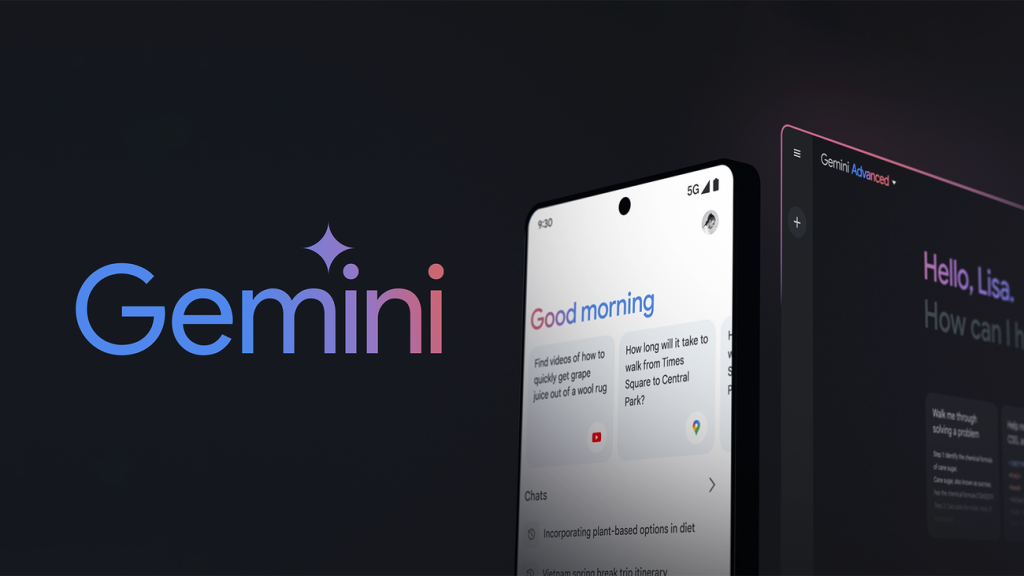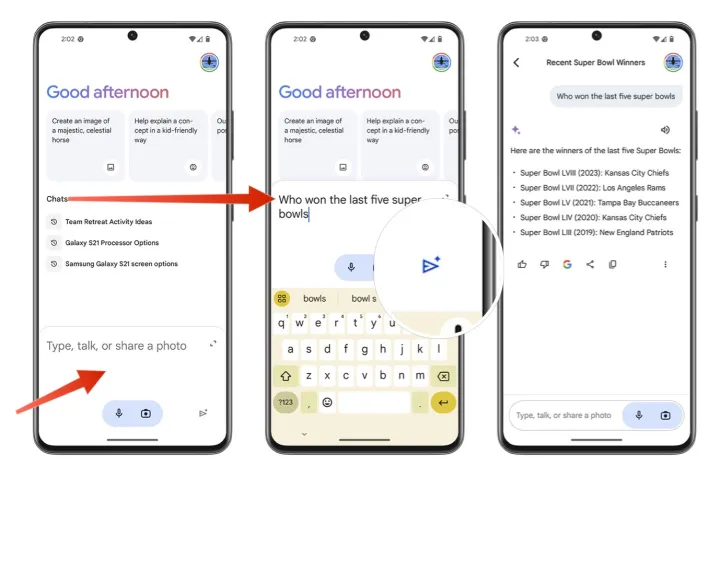Understand the nuances between the two to navigate the digital realm with clarity.

Artificial intelligence is hard to ignore these days, being hailed as the next significant revolution in technology, and Google is striving to lead the charge in this AI boom. Google’s AI initiatives are collectively branded under the name Gemini, which encompasses a variety of forms and functions.
Gemini refers both to Google’s AI models (the underlying technology) and its AI applications (accessible on the web and mobile devices), creating some confusion about what exactly is being referred to or used. Before February 2024, these AI applications were known as Google Bard, which added to the ambiguity.
With continuous updates and new features, most recently showcased at Google I/O 2024, it seemed necessary to clarify the different Gemini-related terms to help users better understand and utilize these AI tools.
Google chose the name Gemini to represent the “twin” AI projects developed within the company. The name also has space-related connotations, being both a constellation and a zodiac sign, as well as the name of a 1960s NASA project. Google aimed to reflect the ambition of space exploration and the multimodal capabilities of Gemini (encompassing text, images, and video).
Google Gemini apps and plans

Firstly, there’s the Gemini app from Google, which is available for download on Android and accessible via the web. As of now, there is no dedicated Gemini app for iOS, but iOS users can access Gemini through the main Google app by tapping the Gemini symbol (a blue-purple star) at the top of the home tab.
Gemini functions similarly to ChatGPT from OpenAI or Microsoft’s Copilot. You type in prompts, and the generative AI provides responses. It can generate poetry and essays, offer travel ideas, assist with decision-making, and give advice on a wide range of topics (though be cautious of AI hallucinations).
Within the Google Gemini app, you can choose between two plans: the basic Gemini plan, which is free for everyone, and a paid plan that provides access to the more advanced Gemini models. These advanced models are smarter, faster, and more versatile.
Currently, there’s one subscription plan called Gemini Advanced, which overlaps somewhat with Google One plans. It costs $19.99 per month and includes additional AI features beyond the more advanced models, such as the ability to upload documents, run Python code, and access Gemini through other Google apps like Gmail and Google Docs.
You also receive 2TB of storage across your Google apps, which overlaps with the Google One service. Additionally, you get other Google One benefits, like a 10 percent discount on purchases from the Google Store. The standard 2TB Google One plan, which doesn’t include the extra AI features, costs $9.99 per month.
Google Gemini models

There are four Gemini models in total. Credit: Google
Google has also branded its AI models as Gemini, which are the engines driving the generative AI capabilities, including the Large Language Models (LLMs) that handle text processing and output. Currently, there are three primary models under the Gemini umbrella, all of which are continuously being developed and upgraded.
The main models are Gemini Ultra (the most powerful and capable), Gemini Pro (optimized for a wide range of tasks), and Gemini Nano (designed for on-device tasks). These models have version numbers that denote their advancements and capabilities. Additionally, there is Gemini Flash (a lighter version of Gemini Pro) and Project Astra, an initiative to create a comprehensive AI agent using the Gemini models, which is still in the early stages.
Gemini Pro powers the free Gemini app. If you subscribe to Gemini Advanced, you get access to either a more advanced version of Gemini Pro (currently, Gemini Pro 1.5 powers Gemini Advanced) or Gemini Ultra, with Google periodically switching between them.
These models process vast amounts of data and typically run in the cloud on Google’s servers. However, Gemini Nano is compact enough to run on devices like the Pixel 8. Although it is less capable than Pro and Ultra due to its smaller size, it offers faster and more private performance since it operates locally on your device.
These models are evolving rapidly. For the latest information on the Gemini models and their applications across Google products (including the Gemini app), you can visit the Google DeepMind hub. This should give you a clearer understanding of which Google Gemini AI model you are interacting with and when.